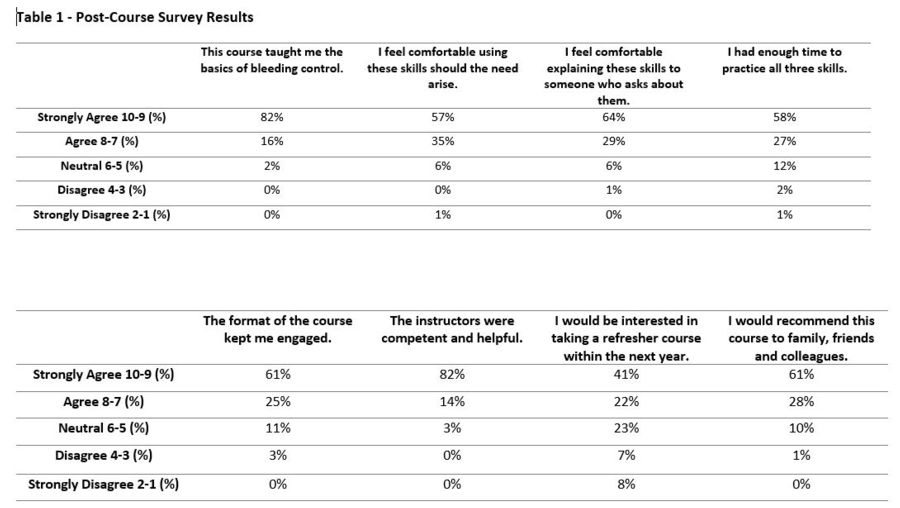Poster2-08: GETTING WITH THE TIMES: INTEGRATING THE BLEEDING CONTROL BASICS COURSE INTO A MEDICAL SCHOOL CURRICULUM
Brad Chernock, MS, PAC, Bart Holland, PhD, Christin Traba, MD, MPH, Sophia Chen, DO, Wissam Nassar, Devashish Anjaria, MD, FACS, Adam Fox, DO, DPM, FACS, Sangeeta Lamba, MD, MS, HPEd; Rutgers New Jersey Medical School
Background: Recent mass casualty events have made bleeding control a topic of national concern. The Hartford Consensus, led by the American College of Surgeons (ACS), has pioneered hemorrhage control through its bleeding control (BCON) program. Medical students may be immediate responders. The Core Entrustable Professional Activities (EPA) for entering residency project identifies EPA 10 as requiring students to recognize a patient needing emergent care and initiation of evaluation and management. A gap exists in teaching hemorrhage control as part of EPA 10 skills. We sought to integrate BCON into the medical school curriculum.
Methods: The BCON program was incorporated into the first-year orientation week in 2016. All students viewed a podcast and completed an online quiz prior to participating in a live skills session. The skills session consisted of a live demonstration of direct pressure, tourniquet application and wound packing. A hands-on workshop followed using the “see one, do one and teach one” approach. Post-course surveys were made available online to assess learner confidence in performing skills and perceived effectiveness of teaching. Periodic skills refreshers were implemented at strategic points during the next three years, including in the surgery clerkship.
Results: Post-course surveys, distributed to 348 students 2017-2018, consistently showed that students enjoyed the program and believed they were able to learn lifesaving BCON skills. 98% of students believed they were effectively taught how to stop bleeding. If the need arose, 92% felt comfortable using bleeding control skills. 86% believed the course format to be engaging.
Conclusion: The ACS BCON program can be effectively integrated into medical school curriculums in an engaging manner. Further study is needed to assess long term retention of skills. Our initial results have encouraged us to include an EPA 10 OSCE on BCON and fourth year instructor program in our curriculum. All medical schools should consider incorporating BCON into their curriculum.

